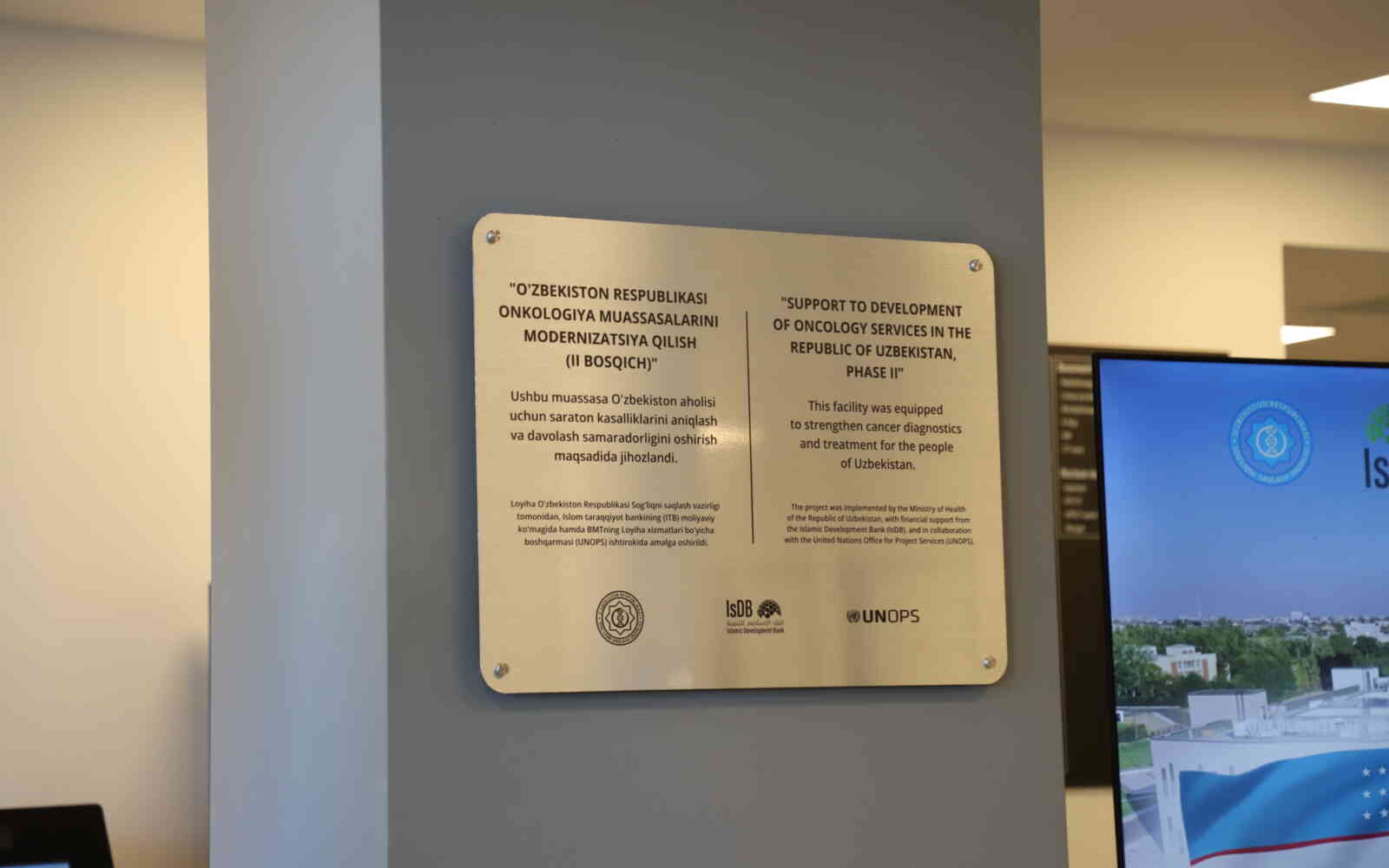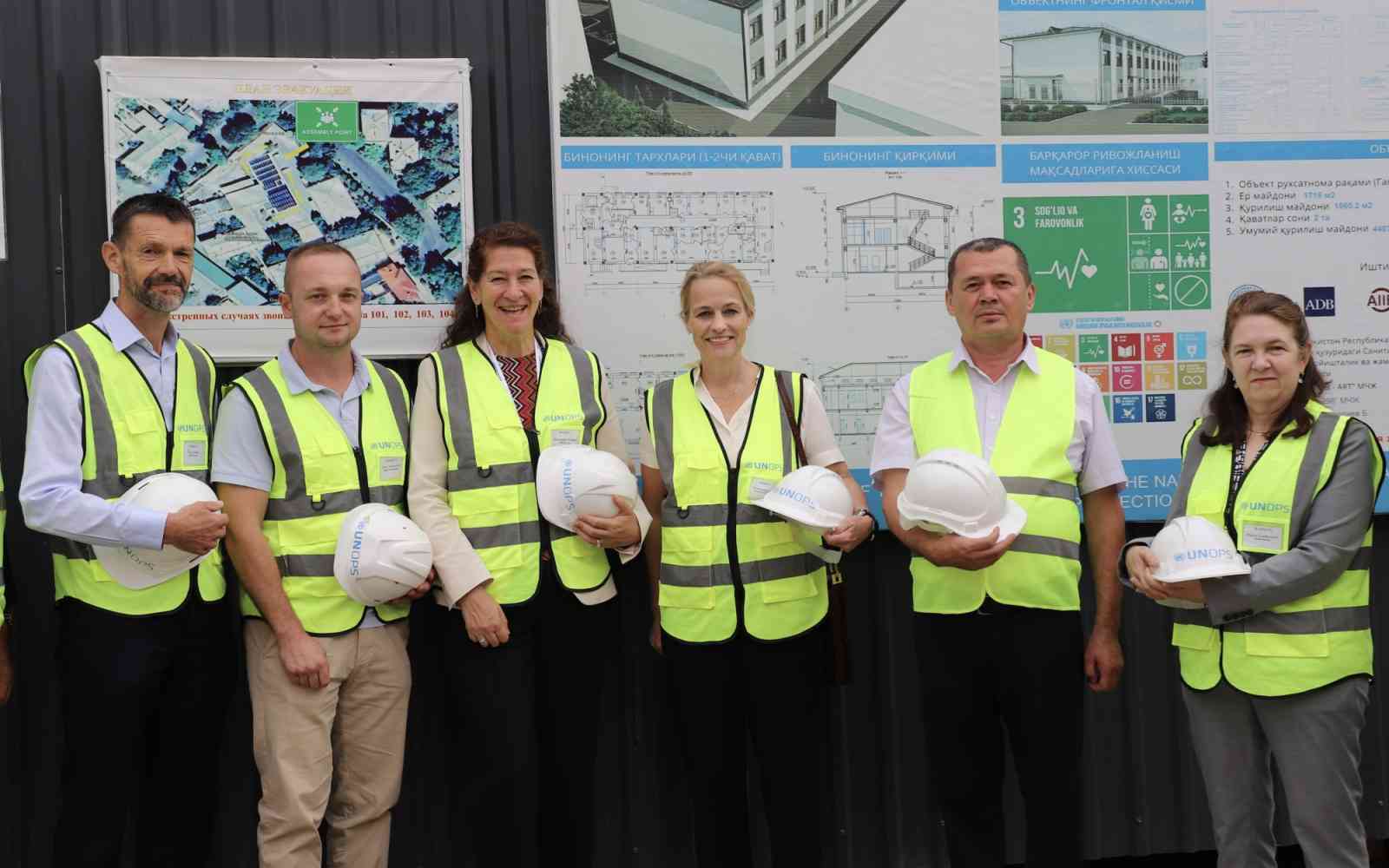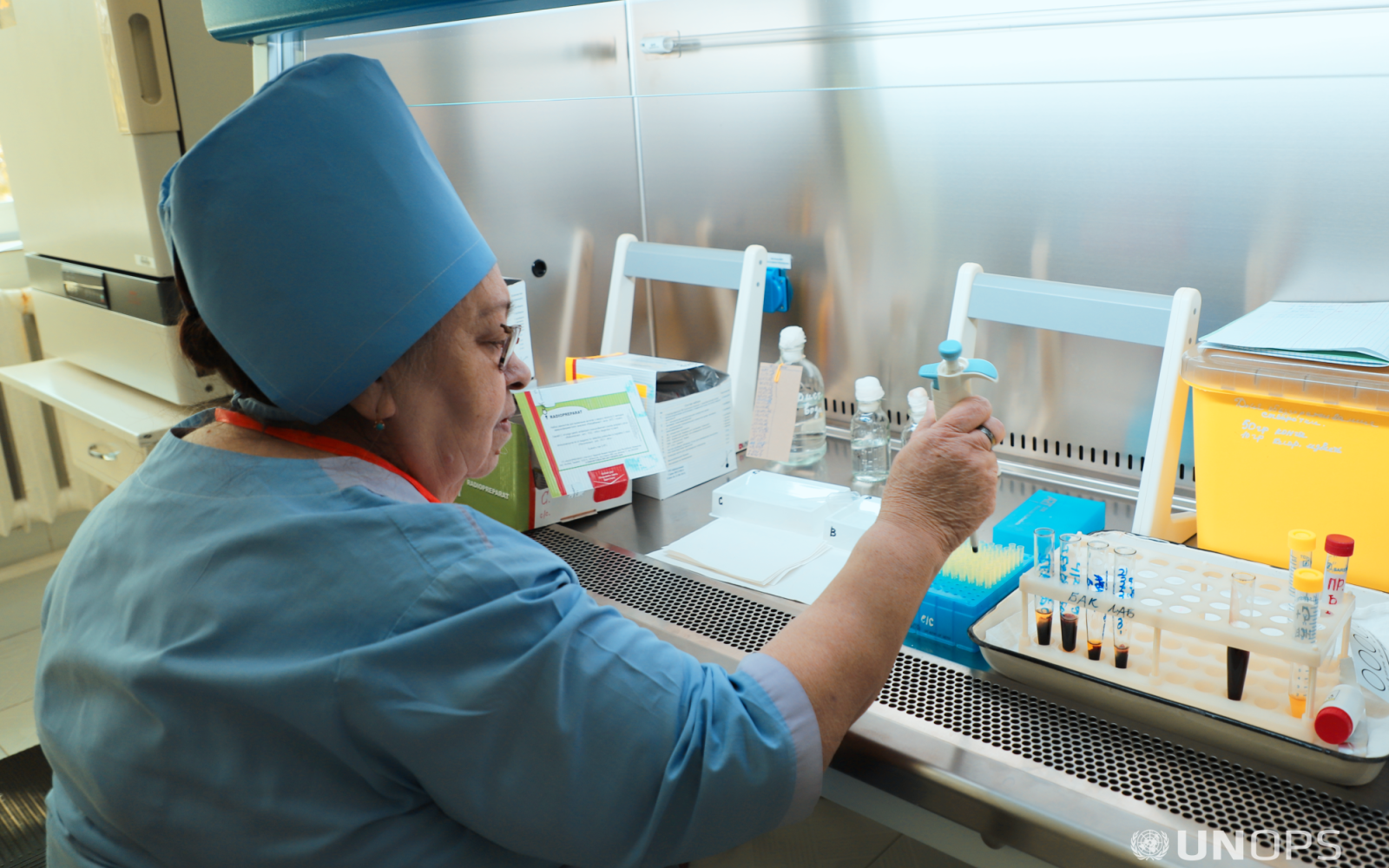The United Nations Office for Project Services (UNOPS)
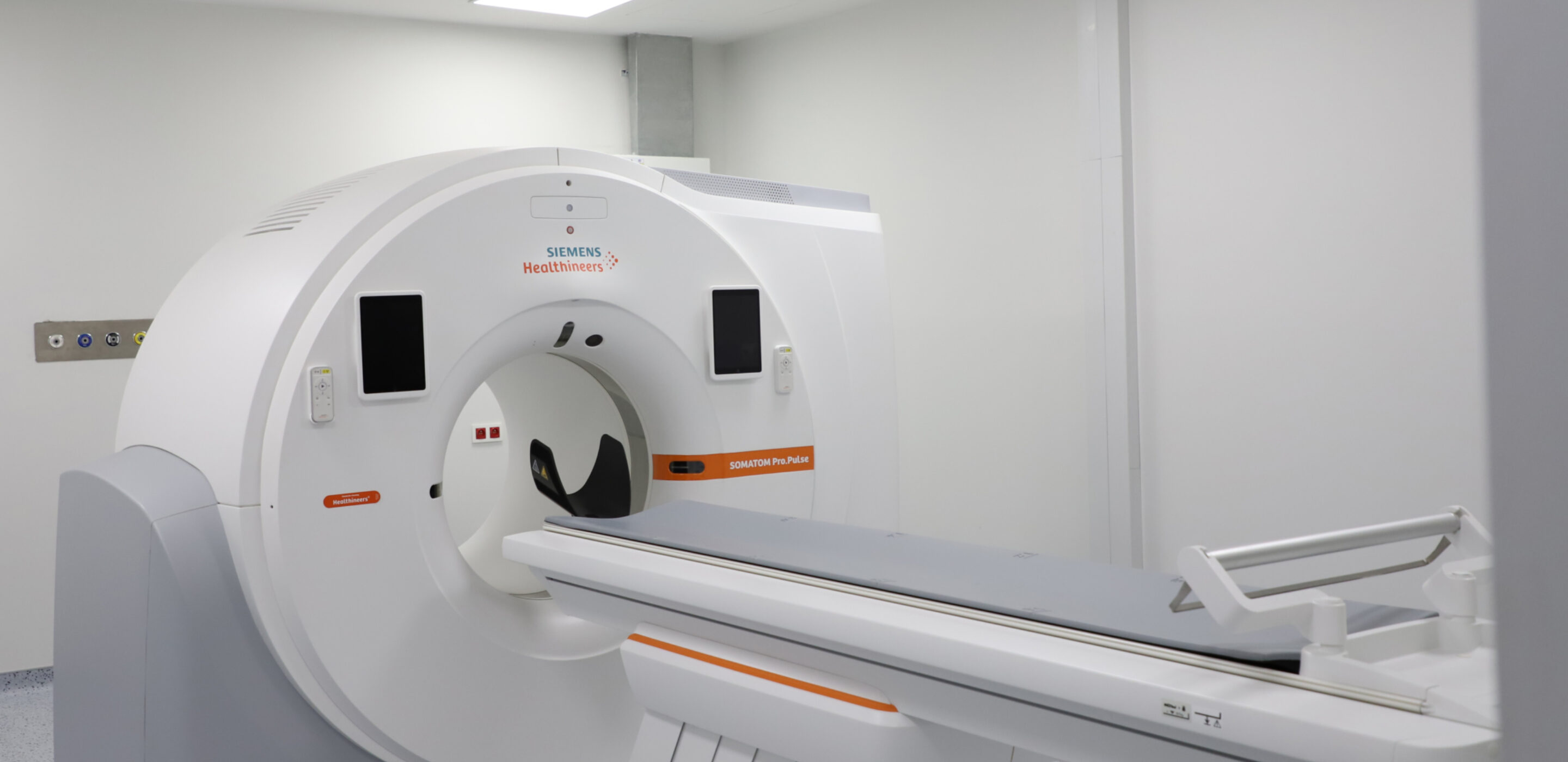
New hope for cancer care in Uzbekistan
A new UNOPS-led initiative is changing how cancer is diagnosed and treated in Uzbekistan.
More than 100,000 cancer patients are registered in Uzbekistan today. Alarmingly, over half of these were diagnosed at advanced stages, when treatment typically requires a combination of surgery, chemotherapy and radiation therapy.
Among the most prevalent is breast cancer. In 2022, it made up 14 per cent of all new cancer cases, with 45 per cent ending in death.
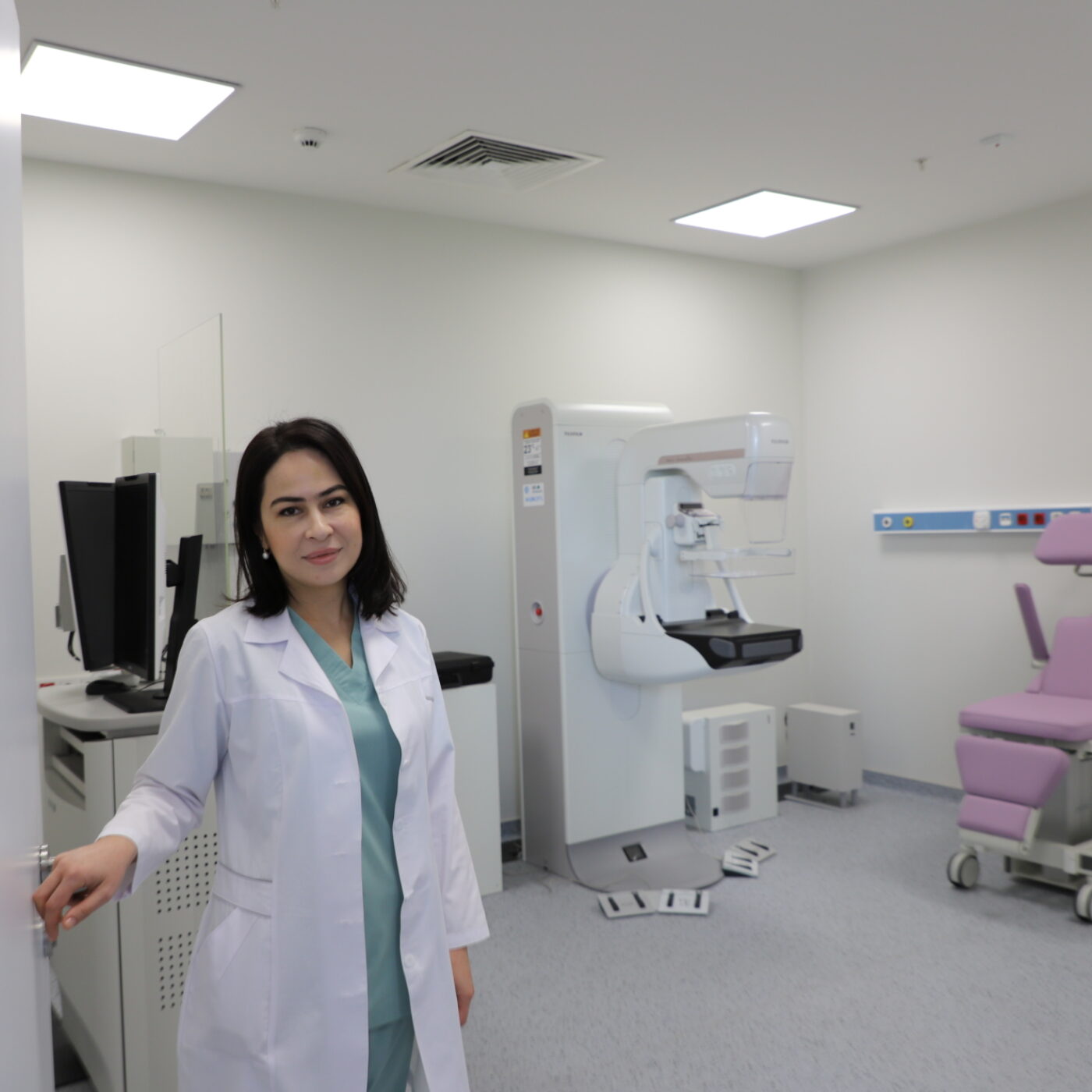
Just ten years ago, breast cancer was considered a disease of older women, mostly over 60. Today, it is getting younger. Cases are now being diagnosed in women as young as 20- to 25-years-old.
In 2024, the government of Uzbekistan, the Islamic Development Bank and UNOPS launched a $80 million initiative to transform cancer care nationwide. As part of this effort, UNOPS procured and delivered 1,500 units of advanced medical equipment to 14 hospitals across the country.
New technology is now reaching patients who once had little hope for early detection. State-of-the-art ultrasound scanners are being used to identify breast cancer at an earlier stage, with a greater focus on screening younger women.
Modern digital mammography systems – safer and more reliable than older models – now allow for enhanced breast screening.
This new generation of mammography is a revolution in breast imaging. It includes tomosynthesis and vacuum-assisted biopsy to detect tumors at an extremely early stage, even ones as small as 0.5 mm, smaller than a grain of rice! It also allows for precise tissue sampling without surgery, so treatment begins long before the tumor becomes clinically visible.
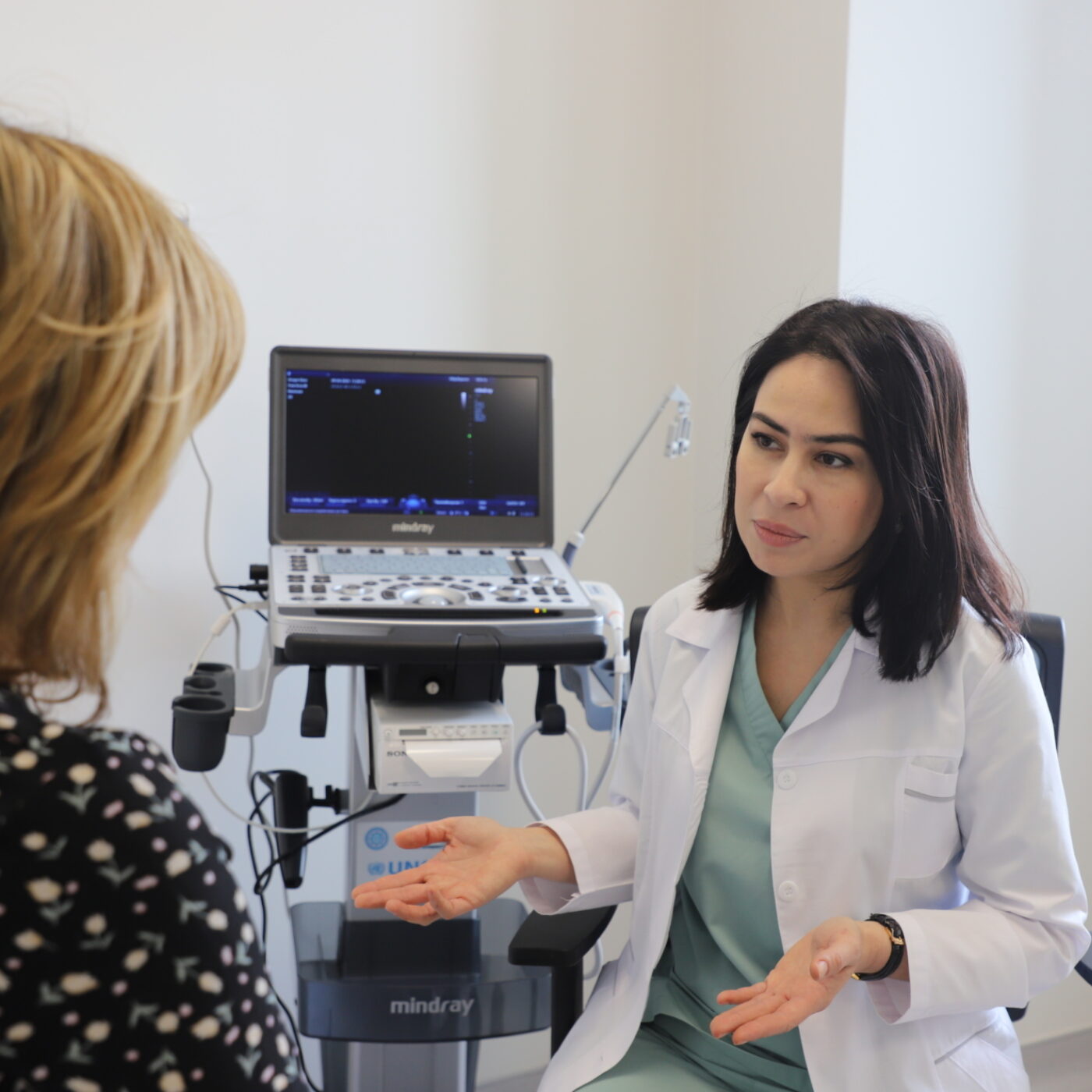
The project has also installed a positron emission tomography and computed tomography (PET-CT) scanner in Uzbekistan's capital. Costing $2.3 million, it is one of the most advanced pieces of medical equipment in cancer care, able to determine the exact stage of the disease, assess the spread, and guide doctors in choosing the most effective treatment. Every region of Uzbekistan can now offer regular screenings for women over 40, with images sent to a central reading hub in Tashkent. There, radiologists analyze them using sophisticated systems, procured by UNOPS, ensuring consistent and accurate diagnosis.
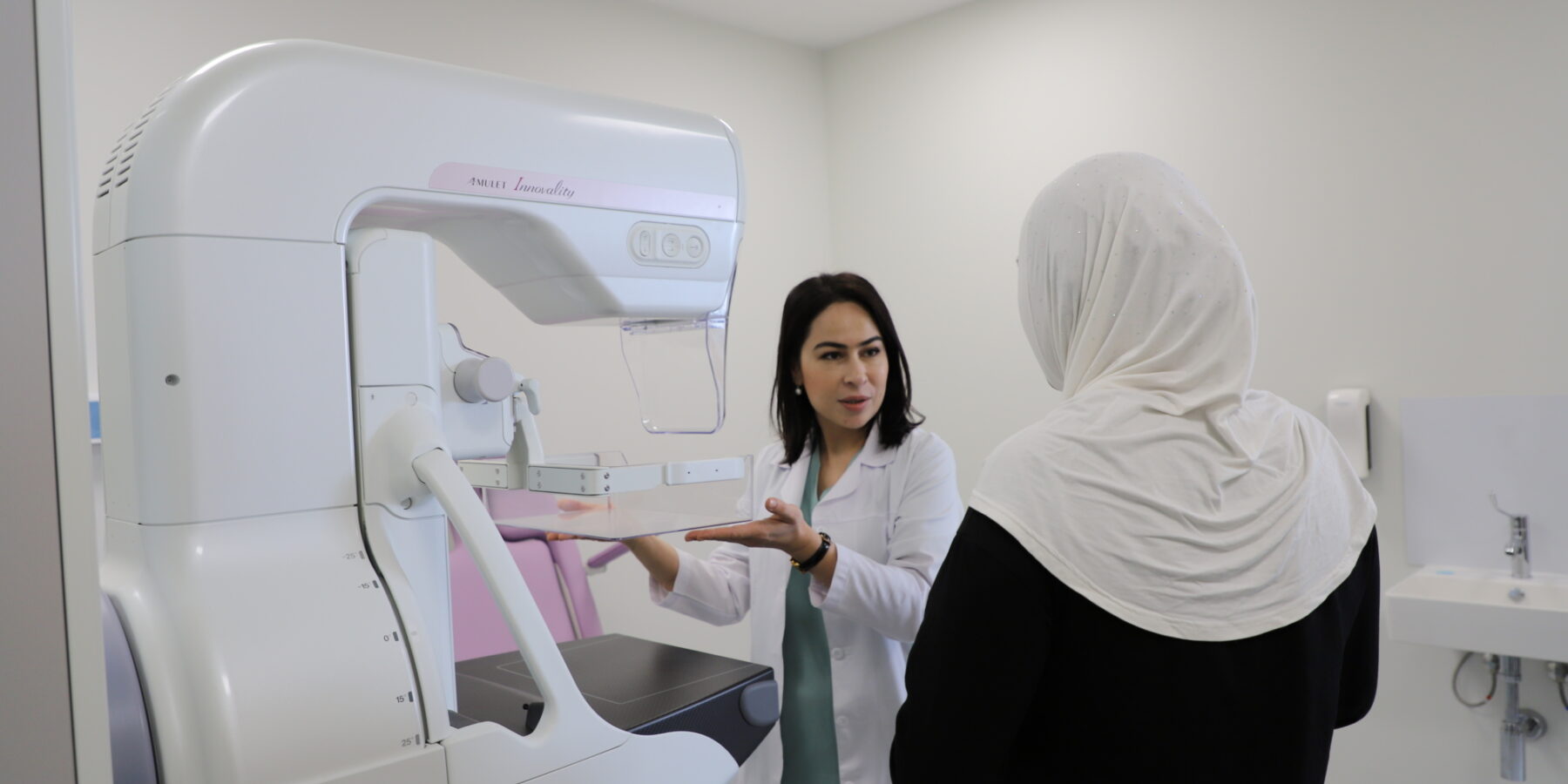
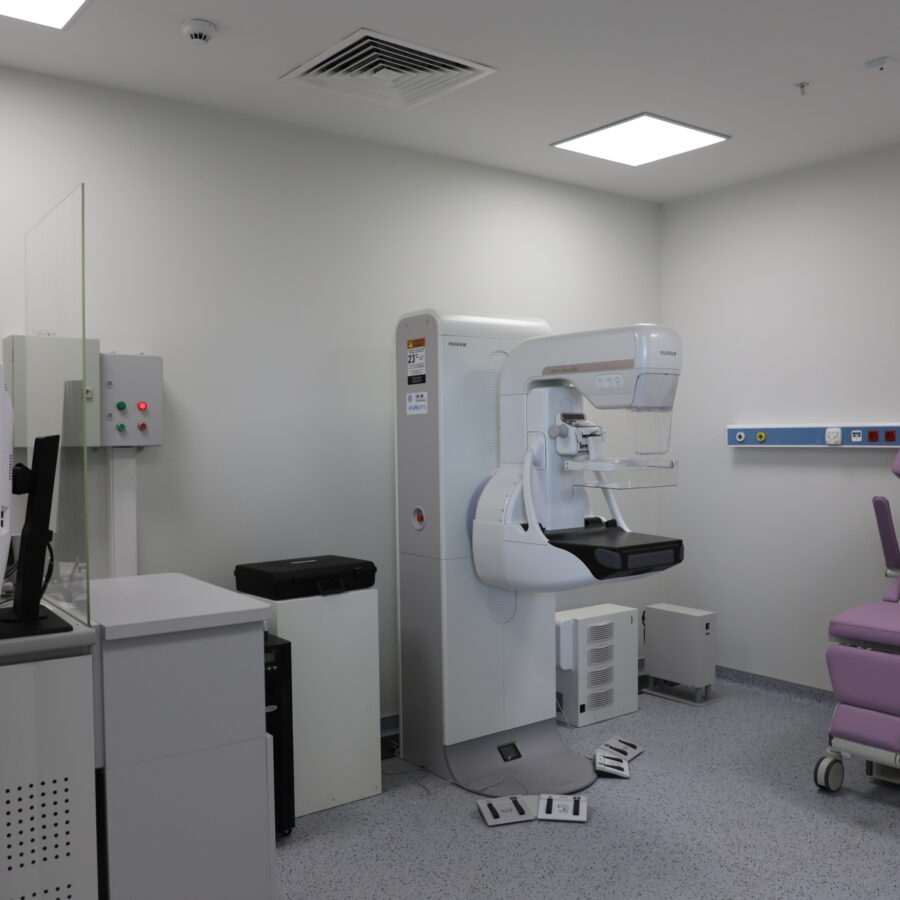

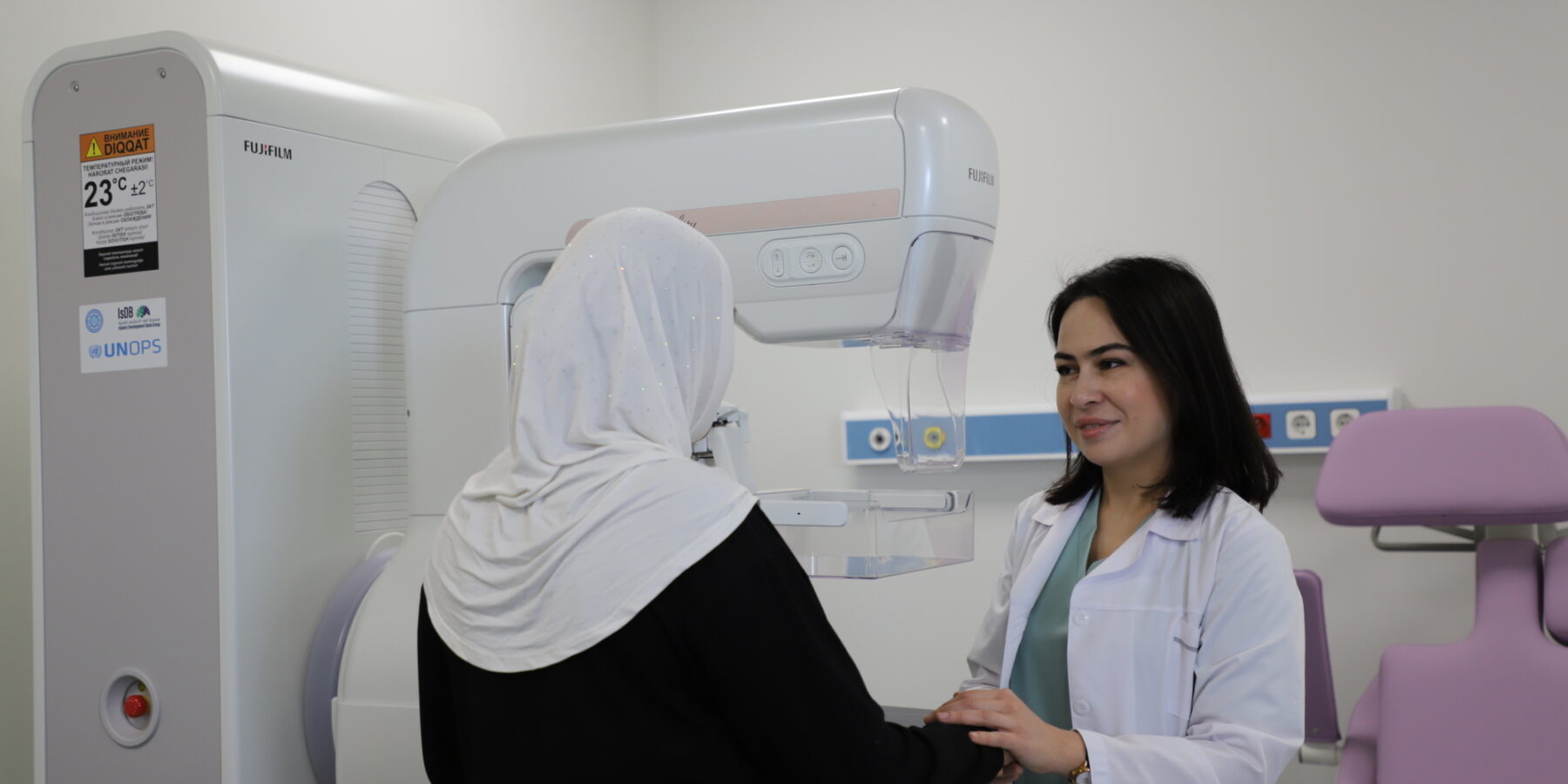
Previously, patients faced long waiting lists and often travelled abroad for the procedure. Now, the service is available free of charge in Uzbekistan, opening the door to life-saving care for many who could not previously afford it.
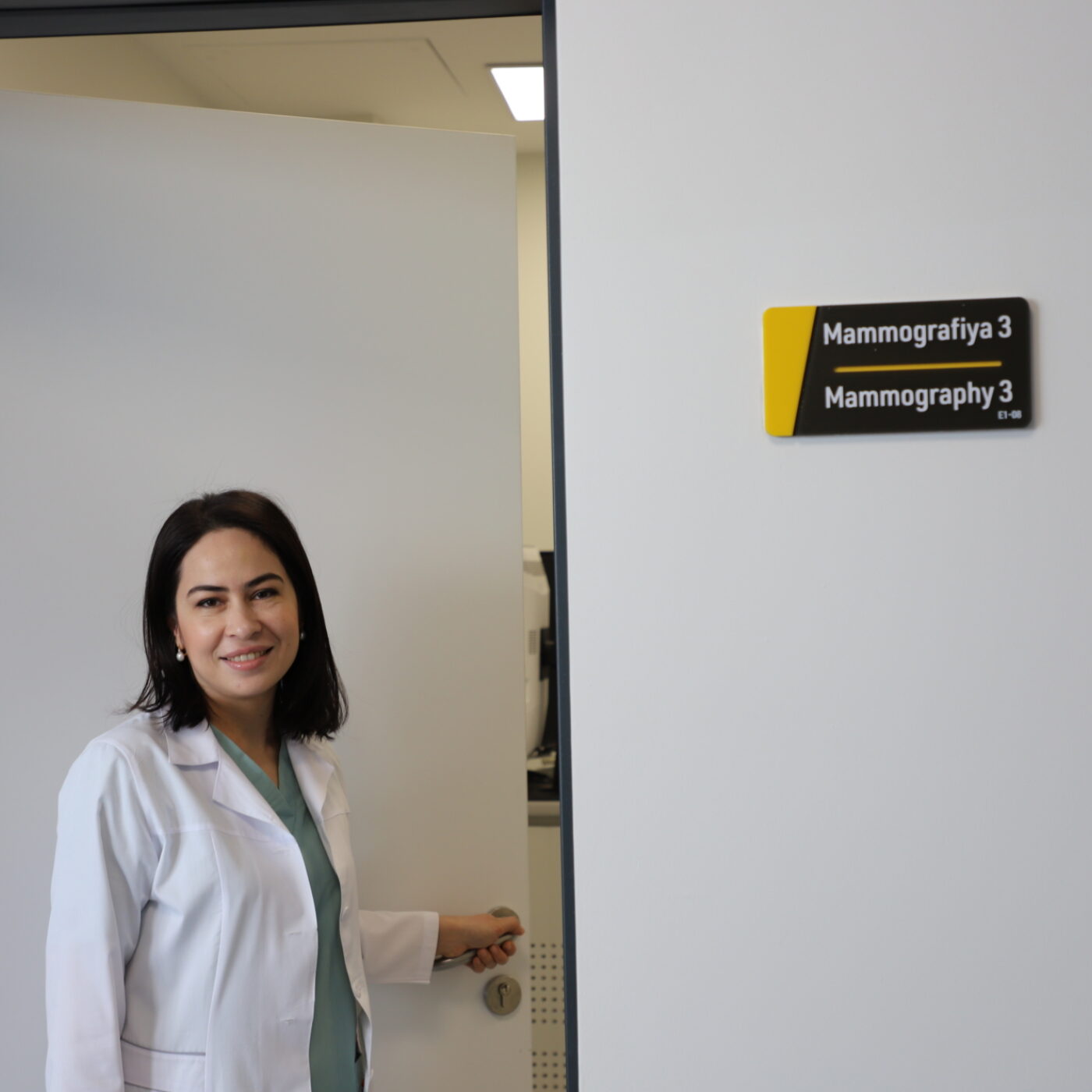
A few years ago, access to mammography was extremely limited. Just one or two machines in the entire country, and only in private clinics. Today, every regional branch of the oncology and radiology center is equipped with a mammography machine.
With new technology and trust in the system, women are seeking help earlier.
“Due to long waiting lists and limited access, many patients were forced to travel abroad to undergo the procedure,” reflects Dr. Zakirova
“Today, the PET-CT scan installed in the centre is offered free of charge, making this critical diagnostic service accessible to all patients in Uzbekistan.”
In addition to strengthening Uzbekistan’s health system, the project is also contributing to sustainable development across the country – including through building resilient infrastructure, and reducing inequalities. With support from the Islamic Development Bank and UNOPS, cancer care in Uzbekistan has entered a new era, bringing hope for a healthier future for all.
With the advancements in this field, I have noticed a real change in women's behavior. While in the past many women were hesitant to speak up about their concerns, now they voluntarily undergo screenings and treatment. That says a lot.
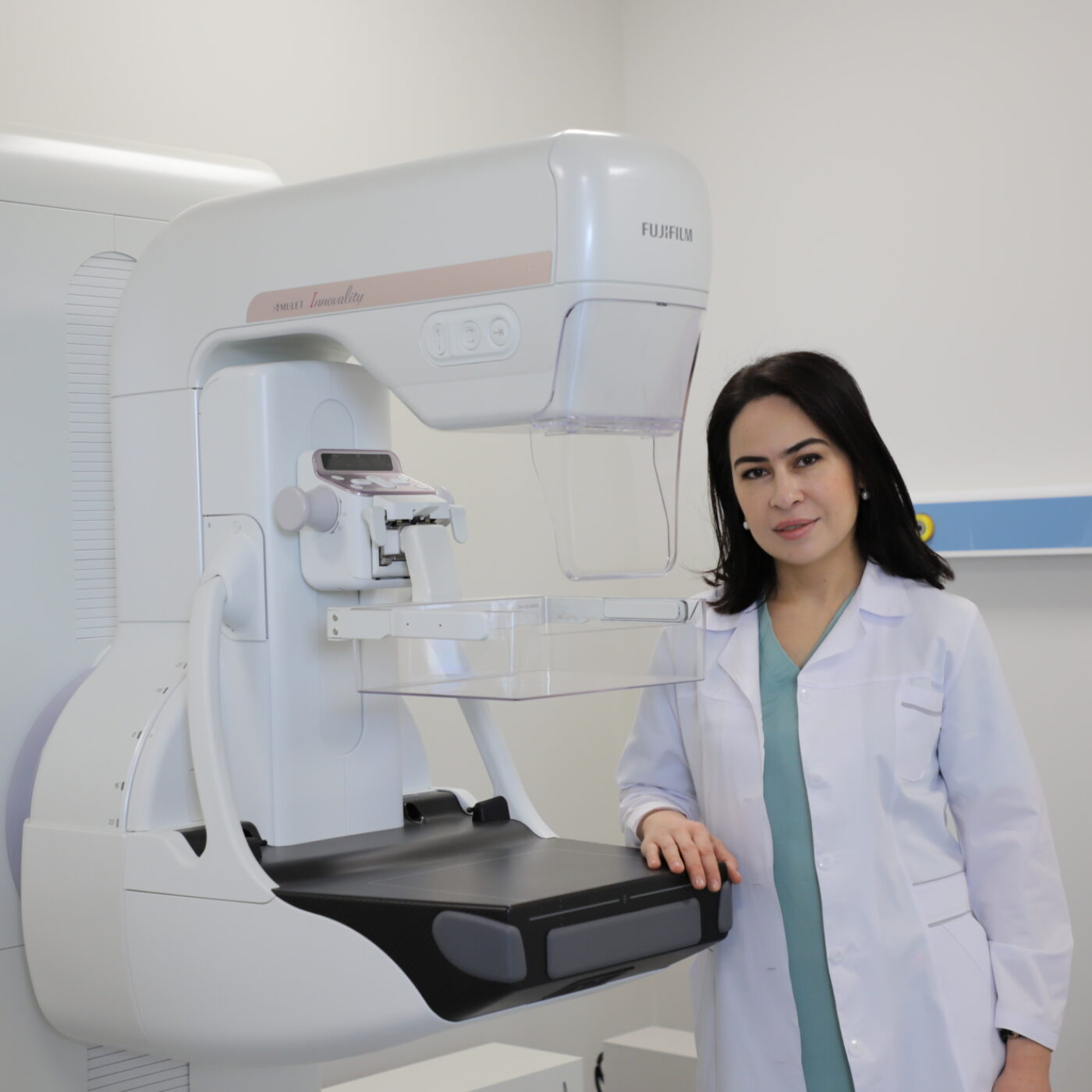
About our work on oncology services in Uzbekistan










